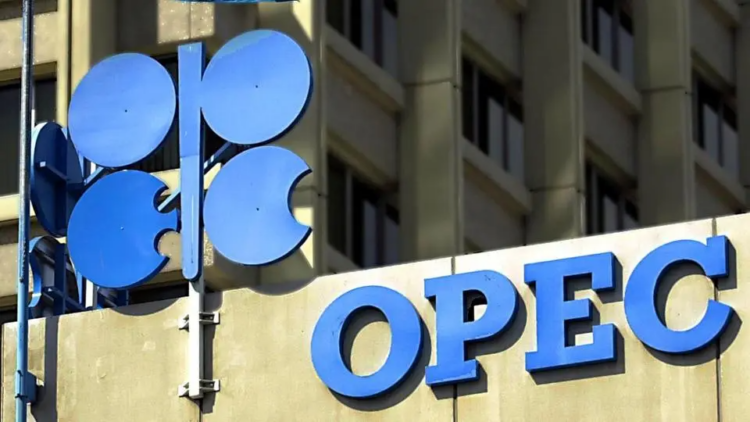
By PETER AGADA Nov, 29, 2023 Featured
Nigeria and Angola, the two largest crude oil producers, have opposed the reduction in their crude oil production quotas by the Organization of Petroleum Exporting Countries (OPEC).
According to delegates, Bloomberg first reported on Tuesday that OPEC was still finding it difficult to resolve the deadlock between some African oil countries and their production quotas that forced the group into delaying a significant meeting amid faltering prices.
Bloomberg reported that the Saudi-led alliance had not been able to reach an agreement with Angola and Nigeria, which were pushing back against lower quota limits for 2024 that reflect their diminished production capabilities, delegates told Bloomberg, asking not to be named because the information was private.
A delegate said that the stalemate may only be resolved after the scheduled OPEC meeting on November 30, 2023, potentially requiring a further delay.
However, OPEC and all its partners are expected to conclude and fix production policy for 2024, with market watchers predicting that further cuts are needed as crude prices sag towards $80 per barrel on the prospect of a renewed surplus.
In July, Saudi Arabia has been making a voluntary oil production cut of one (1) million barrels per day and is seeking that all coalition members reduce their quotas to share the burden of cuts.
However, Nigeria and Angola are disputing changes to their oil production targets provisionally agreed upon when OPEC met in June.
PUNCH reported that those new quotas were subject to review by external consultants, and both countries were unhappy with the revised figures.
Nigeria is now seeking a quota of 1.58 million barrels per day for 2024, a slight increase from the provisional level, one delegate said.
Luanda is proposing 1.18 million barrels per day, which is lower than the figure agreed in June but higher than the consultants’ estimate, the delegate said.
Failure to reach a consensus could be very costly for the 23-nation coalition, which relies on oil revenue to cover government spending.
More Insights By PUNCH
Crude traders have priced mainly in that group leaders Saudi Arabia and Russia will extend their 1.3 million barrels per day of additional supply curbs through the first quarter of 2024.
Many are banking on even more muscular action from the broader alliance.
“With fundamentals softening and market sentiment bearish, OPEC may need to announce another formal cut,” analysts at Eurasia Group led by Raad Alkadiri said in a report on Monday.
They added that anything short of a one million barrels per day reduction could send prices to the low $70s.
As part of the deal agreed in June, the United Arab Emirates secured the right to increase production modestly in January to deploy recent capacity additions. It’s unclear whether there’s any pressure now for Abu Dhabi to relinquish that boost to shore up flagging markets.
Tags: OPEC
Share On Facebook Twitter Linkedin Whatsapp Telegram
Categories
Latest Post
- Nigeria Taps Global Markets with $2.25B Eurobond Sale
- Boeing Shares Rise as CEO Confirms China Deliveries to Resume Next Month
- STOCK SPOTLIGHT: UNION HOMES REAL ESTATE INVESTMENT TRUST (UHREIT)
- Nvidia Q1 2025 Earnings Report Summary
- 📉 U.S. Market Summary – May 28, 2025
- CBN Launches New Financial Tools to Boost Nigeria’s Non-Interest Banking Sector! ✨
- Market Watch: Key Updates as Wall Street Awaits Nvidia and Salesforce Earnings
- U.S. Equity Markets Rally as EU Tariff Deadline Is Extended and Consumer Confidence Surges
- Things to Know Before the U.S. Stock Market Opens
- What to Expect in the Markets This Week (May 27–31)

Start investing with Acorns today! Get $5 when you use my invite link: Z24WWE
